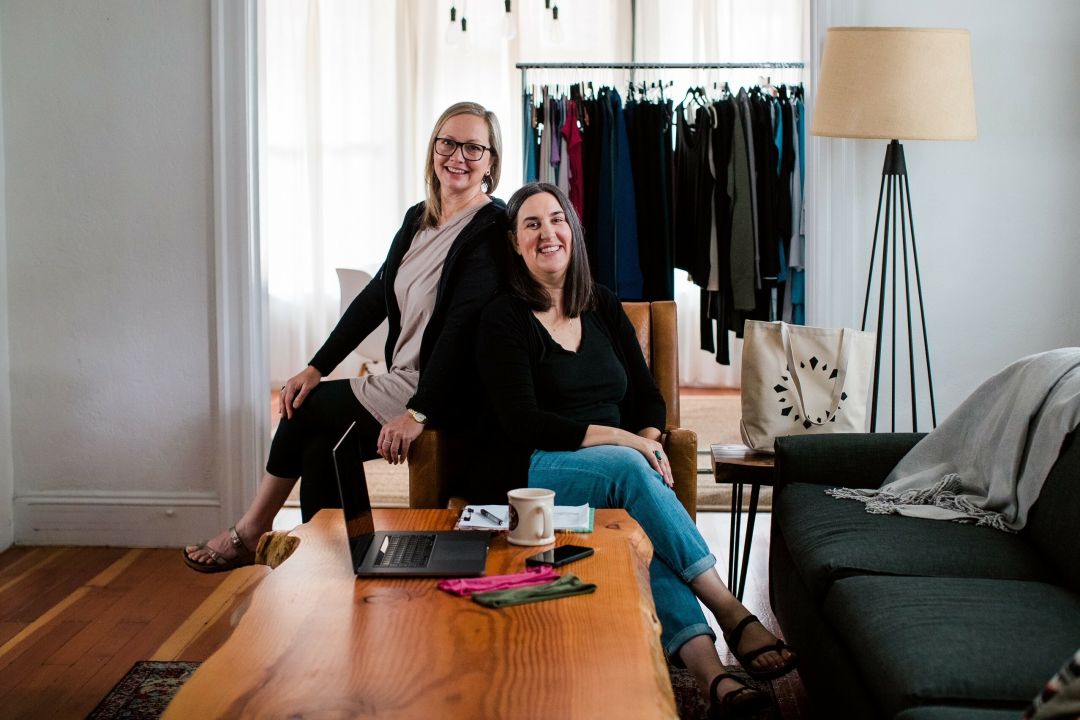What Happened When Two Employees Bought This Ashland Apparel Company?

YALA co-owners Rachel Davis and Tiffany Zohara
Image: Courtesy YALA
Incomparably soft sheets, silky sleepwear, and second-skin bamboo leggings? Check. Sustainable products? Check. Livable wages, healthcare, and retirement packages for everyone on staff? Ashland-based YALA Designs has that checked, too. Plus, it’s owned and run by two of the company's former employees.
Originally launched as DreamSacks in 1996 by Nancy and Larry Morgan, YALA expanded its product offerings over the years along with a name change. Over 20 years into its existence, longtime employees Tiffany Zohara and Rachel Davis—now also best friends—took over ownership. “I was working on a production team and she was working on the marketing team,” explains Zohara of when she first met her co-owner Davis. “What made us fast friends from the beginning was that we had both as 19-year-olds traveled with the Grateful Dead.” she explains. “And for us it had been our passion and our dream to own a sustainable apparel company as teenagers since high school,” she says.
In 2019, the two—whom Zohara describes as “two women without a lot of assets but with a whole lot of skills”—found themselves with the chance to make that happen, in part thanks to funding through First Interstate Bank, a small local bank, and with help from Business Oregon.
This August will mark two years since Zohara and Davis bought YALA, and in that time, the two have stepped up the brand’s sustainability efforts even more. In addition to selectively harvesting organic bamboo into fabric in a closed-loop viscose process, they use low-impact AZO-free dyes to create a finished product that is ultra soft, gentle on the environment, and safe for all parties.
Achieving their sustainability goals often means higher prices, but in return, they use a lot fewer materials and only buy what they use. “Waste in apparel is something that no one ever talks about," says Zohara. "And for me, it was one of the biggest things where I saw us not being sustainable and we needed to fix that.” When they do end up with extra fabric runs, they create different products and limited runs of other items, like using cutting scraps to fill blankets and quilts, or making athletic headbands that don't damage or pull the hair thanks to the gentle bamboo fabric.
Zohara says that the brand has flourished during COVID in a lot of ways. The fact that they happened to sell loungewear served them well during the pandemic, while many were stuck at home and seeking more comfortable garments. And they’ve prioritized their own employees while doing so.
“When COVID first happened… our first thing was we didn't want anyone to lose their job,” says Zohara. But to their delight, they were actually able to give two wage increases during COVID, and to allow employees to work from home.
“We really want to be the company that we've always dreamed of working for,” Zohara says. “It was like, ‘Let's show it's possible to pay people living wages and pay people well, and give them good insurance and still do well. That it's not all about the bottom line.”




